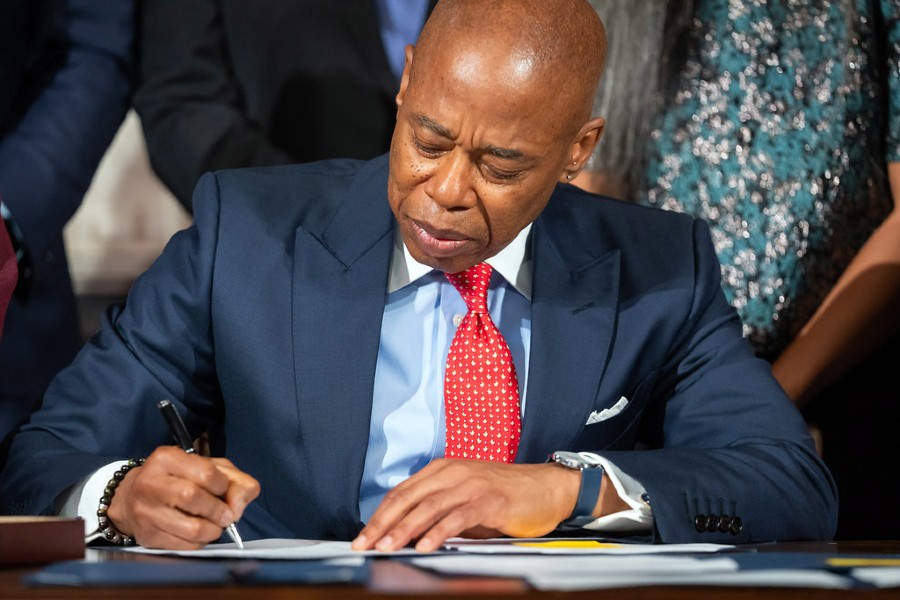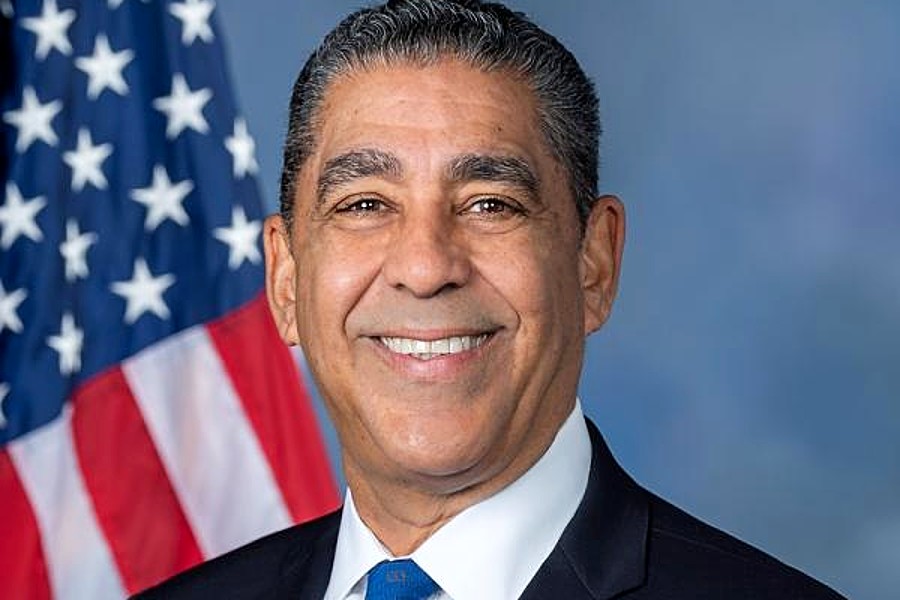 On the morning of Sept. 11, 2001, Robert Alexander and his father, Raymond, both had the day off — until two airliners crashed into the World Trade Center towers.
On the morning of Sept. 11, 2001, Robert Alexander and his father, Raymond, both had the day off — until two airliners crashed into the World Trade Center towers.
Raymond Alexander, a New York City firefighter, immediately reported to his firehouse in the Bronx as his son, a New York Police Department officer, headed to his precinct in East Harlem. Then, along with thousands of first responders, the father and son rushed to Lower Manhattan, where ash and debris rained onto the streets.
For days, they scoured the toxic rubble at Ground Zero. Robert desperately searched for his best friend, one of the 343 firefighters killed on the deadliest day in history for the department. And for many weeks, both Robert and Raymond Alexander combed through human remains at Fresh Kills landfill in Staten Island.
The pair survived the terror of 9/11, and the days that followed strengthened their already close bond. Months after the attacks, Robert Alexander followed his father’s and his grandfather’s lead and left the police force to join the New York Fire Department, later becoming a marine engineer.
But their service in the city’s Ground Zero recovery would take a deadly toll.
In November 2016, Raymond Alexander died at the age of 76 after battling seven different types of cancer over 13 years, a disease his family says was linked to his rescue and recovery work after the 9/11 attacks.
On Monday, less than a year later, his son Robert, 43, died of brain cancer, also related to toxin exposure at Ground Zero, his family said. They had no family history of cancer, relatives told The Washington Post, and both men lived healthy lifestyles.
Robert Alexander’s death marked the first time since Sept. 11, 2001, in which the 9/11 attacks “have claimed the lives of two generations in a single family,” Gerard Fitzgerald, president of the Uniformed Firefighters Association, wrote in a statement.
Nearly 16 years after the terrorist attacks, 142 firefighters and fire officers have died due to 9/11-related illnesses, according to the association. Scores of firefighters, police officers, recovery workers and survivors continue to suffer from ailments linked to inhaling toxins amid the rubble.
For the Alexander family, the deaths marked an end to many years of anguish endured by both men. They were described by relatives as physically capable and “selfless” firefighters accustomed to prioritizing others’ well-being above their own.
Robert Alexander’s brother, named Raymond like his father, said it was “horrible” to see his brother deteriorate and lose his ability to walk straight, speak clearly and do the things he loved — like cooking.
“I don’t view him as a person who has succumbed easily,” Raymond Alexander said. “In my world he’s one of the few people who could’ve, should’ve, would’ve beat it. But it’s brain cancer.”
The father’s cancer diagnosis came less than two years after the World Trade Center attacks, Raymond Alexander said. And during that time, Robert meticulously took care of his father almost every other day. “He went all in,” Raymond Alexander said.
Robert, who was an emergency medical technician before becoming a police officer, “knew more about taking care of people in emergency situations than anyone else,” his brother said. He shared his father’s medical care with his mother, Alice.
But in November 2014, exactly two years to the day before his father’s death, Robert was also diagnosed with cancer. What started as headaches turned out to be an inoperable brain tumor the size of a peanut. He retired from the fire department in October 2016, marking 80 continuous years of Alexanders in the department.
The two men were similar — quiet, humble men of few words. They hardly ever talked about the “baggage they carried,” Raymond Alexander said. “It’s like talking to a soldier about battlefield stuff.”
But their shared profession and illnesses gave them a “deeper connection than I could understand,” Raymond Alexander said.
“They’re the type of people that are just going to see something wrong and walk into it,” said Lori LaPonte, a cousin of Robert. “Because they’re protecting everyone behind them.”
Become a Harlem Insider!
By submitting this form, you are consenting to receive marketing emails from: . You can revoke your consent to receive emails at any time by using the SafeUnsubscribe® link, found at the bottom of every email. Emails are serviced by Constant Contact








